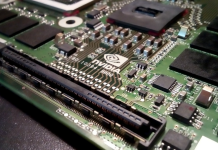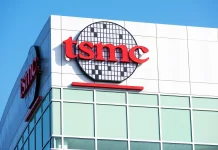The United States has increased its pressure on the Taiwan Semiconductor Manufacturing Company aka TSMC for producing its military-use chips in the country. This is being done to ensure that the world’s biggest contract chipmaker can manufacture the high-security components free from potential Chinese interference.
This isn’t the first time the company is facing similar security requests from the United States and the company sidelined them. For those who are unaware, along with being a key supplier for Apple and Huawei, TSMC also makes computer chips used in American F-35 fighter jets.

TSMC, which holds about 50 percent share of the world’s chip foundry business, supplies computer chips to Huawei and American tech giants such as Google, Qualcomm and Intel. The company also supplies high-performance chips for U.S. military suppliers such as Xilinx, which in turn makes components for American F-35 fighter jets and satellites.
In addition to the F-35 jets, TSMC makes U.S. Defense Department-approved “military grade” chips that may be used by some of its other American clients for classified military purposes.
EDITOR’S PICK: United States President Donald Trump signs first phase trade deal with China
As per the report, American officials talked with TSMC “several times” ahead of last weekend’s election in Taiwan. The Pentagon has long worried about risks regarding Taiwan and China’s connection and last year contacted several TSMC customers, warning them about the security implications of offshoring production to a Taiwanese company.
On the other hand, while TSMC has not given in on the demand of the United States, the company has repeatedly said that it would not rule out building or buying a high-specification plant in the U.S. to assuage such concerns. However, the company has also cautioned that such a move would need to be weighed carefully given the higher operating costs involved.
The United States accounts for about 60 percent of TSMC’s sales, but the company operates only its subsidiary WaferTech there, which produces chips for mature technologies while the majority of TSMC’s production remains in Taiwan.
UP NEXT: Xiaomi’s Mi Watch will get another OTA update from tomorrow that will bring a few new features
(Source)







